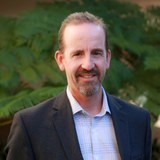"The Control of Time," by Frank Doyle

Abstract
A challenging problem in systems biology is to rapidly re-entrain circadian oscillations that have been forced out of synchrony with the environment due to external factors such as jet lag or shift work. Recent studies have identified small-molecule pharmaceuticals which effect dose-dependent changes in the mammalian circadian clock, providing an avenue for control of circadian amplitude and phase. In this work, we use a molecular model of the mammalian circadian gene regulatory network to inform a model predictive controller (MPC) for optimal re-entrainment of the circadian clock. Practical constraints on the re-entrainment process arise due to the wide variation in the parametric phase response curves (PRCs) describing drug response. We demonstrate that, in the presence of such practical constraints, careful consideration of the MPC prediction horizon, the cost function, and the controller sampling time is required for optimal phase resynchronization. We illustrate the effectiveness of circadian clock manipulation via MPC through in-silico experiments.
Biography
Frank Doyle is the John A. Paulson Dean of the Paulson School of Engineering and Applied Sciences at Harvard University, where he also is the John A. & Elizabeth S. Armstrong Professor. Prior to that he was the Mellichamp Professor at UC Santa Barbara, where he was the Chair of the Department of Chemical Engineering, the Director of the UCSB/MIT/Caltech Institute for Collaborative Biotechnologies, and the Associate Dean for Research in the College of Engineering. He received a B.S.E. degree from Princeton, C.P.G.S. from Cambridge, and Ph.D. from Caltech, all in Chemical Engineering. He has also held faculty appointments at Purdue University and the University of Delaware, and held visiting positions at DuPont, Weyerhaeuser, and Stuttgart University. He has been recognized as a Fellow of multiple professional organizations including: IEEE, IFAC, AIMBE, AIChE and the AAAS. He was the President for the IEEE Control Systems Society in 2015 and was the Vice President and Chair of the Technical Board for the International Federation of Automatic Control from 2014 to 2017. In 2005, he was awarded the Computing in Chemical Engineering Award from the AIChE for his innovative work in systems biology, and in 2015 received the Control Engineering Practice Award from the American Automatic Control Council for his development of the artificial pancreas. In 2016, he was inducted as a Fellow into the National Academy of Medicine for his work on biomedical control. That same work earned him induction to the National Academy of Inventors in 2020, and recognition from IFAC with their Industrial Achievement Award in 2020. His research interests are in systems biology, network science, modeling and analysis of circadian rhythms, and drug delivery for diabetes. In his spare time, he enjoys hiking with his family, genealogical research, and is a certified soccer referee at the adult and collegiate level.
For Zoom link, visit cbe.nd.edu/seminars.
Zoom webinar sponsored by the Department of Chemical and Biomolecular Engineering